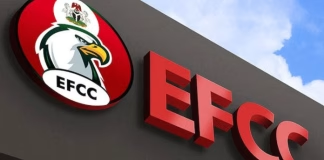According to data released by the Central Bank of Nigeria, net foreign exchange inflows into the nation reached $25.4 billion in the first half of 2024, up 55% over the same period the previous year. It claimed that its policy initiatives were to blame for the noticeable advancement. This latest information is related to its $876 million auction, which was held to settle outstanding FX demands among 26 banks.
This development has been driven by a spike in capital importation, which hit $6 billion in June 2024, and record inflows from diaspora remittances through official channels, according to a statement released by the top bank on Thursday.
The statement read, “The CBN’s policy objectives are yielding tangible results and bolstering market confidence. Net foreign exchange flows rose to $25.4 billion between January and June, marking a 55 percent year-over-year increase.
“This growth has been driven by a rise in capital importation, which reached $6 billion in June 2024, and record inflows from diaspora remittances through formal channels.”
The CBN also stated that in the last three weeks, more than $305 million in foreign exchange has been sold to approved dealers via a two-way quote mechanism that has been implemented in recent months to improve interbank market liquidity.
The announcement claims that the CBN bid $876 million to match bids made by clients at an auction that ended on Wednesday, August 7, 2024.
The Retail Dutch Auction System was used to accomplish this. Its goals include facilitating FX sales to end users directly, increasing market transparency, lowering information asymmetry, and assisting in price discovery.
The statement read: “In the latest testament to the Central Bank of Nigeria’s ongoing commitment to support the proper functioning of the foreign exchange market by enhancing liquidity when necessary, the apex bank offered $876 million to fulfil bids submitted by customers at an auction concluded on Wednesday, August 7, 2024.
“In line with its pledge to provide transparent access to foreign exchange for all legitimate customers, the CBN’s leadership has introduced an additional mechanism through the Retail Dutch Auction System to directly facilitate FX sales to end users.
“This approach aims to foster a more transparent market, reduce information asymmetry and support price discovery. It complements the two-way quote system deployed over the past few months to enhance liquidity in the interbank market, through which over $305 million of foreign exchange has been sold to authorised dealers in the last three weeks.”
The apex bank also said that it contributed less than 5 per cent of the $43 billion foreign exchange turnover recorded on the official market as of July 2024.
In its statement, the CBN noted that the FX market is showing signs of improvement and increased depth, with more robust and diversified sources of liquidity contributing to the sustained convergence of exchange rates across all market segments.
The statement added, “The foreign exchange market is also showing signs of improvement and increased depth, with more robust and diversified sources of liquidity contributing to the sustained convergence of exchange rates across all segments of the market. The official market recorded a turnover of $43 billion in customer transactions by the end of July 2024, with CBN-supplied liquidity representing less than 5 per cent of total market activities.”
The CBN also stressed that it is committed to fostering a transparent, market-driven foreign exchange environment and will continue to strengthen the market’s capacity to meet the needs of all legitimate participants.
Since he assumed office last year, the CBN under the leadership of Olayemi Cardoso, has employed a variety of policies to stabilise the foreign exchange market and boost productivity.
While government officials claim there have been massive improvements, the lives of average citizens have yet to improve due to soaring inflation and the high cost of living.














